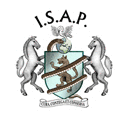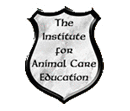
This course has been developed for those who want to work with animals in a veterinary setting. It covers all the knowledge and understanding topics that are required to be employed as an Animal Nursing Assistant with the exception of the work experience and practical related subjects.
This first part will be particularly useful for any one caring for a range of animals in a professional capacity. The second part is aimed specifically at the veterinary practice assistant.
This a particularly detailed and comprehensive course that is unrivalled in the world of home study.
Course Modules
1. Introduction to Common Animal Species
- An introduction to some of the common animal species that may be kept as pets
- The history of keeping different pets
- Choosing a species that particularly interests you and research its care and management, to give advice to pet owners
2. Body Systems of Common Pet Animals
- Taking your knowledge of the different species from module 1 even further
- Introduction to body systems of commonly kept pets
- Anatomy
- Physiology of respiratory system
- Physiology of reproduction
- Physiology of circulatory system
- The differences between different species
3. Animal Health and Hygiene
- How to maintain the health of commonly kept pet species
- Good hygiene
- The care required in terms of preventative healthcare
- Feeding and selecting a suitable diet for particular species
- Grooming
- Vaccination
- Parasite control
- Some of the common health problems are covered and how to deal with them
4. First Aid, Handling and Restraint
- Handling and restraining different species in order to carry out health checks and to perform any routine procedures, such as grooming or nail trimming
- If working within a veterinary practice, methods to restrain animals for veterinary examination
- Basic first aid information for a variety of species
- What to do in an emergency
- Assessing a situation to decide when veterinary attention is required
5. Welfare Issues and Organisations
- What is good welfare?
- Advising clients with regards to good welfare for different species
- How to assess the welfare of an animal, what constitutes poor welfare?
- An introduction to stereotypical behaviour
- Medical conditions that may give the appearance of neglect or poor welfare
- What to do if you are concerned about an animal's welfare
- The different welfare organisations and their aims and objectives
- Ways in which the welfare of captive animals can be improved
6. Animal Law
- Being aware of the laws that may affect you when caring or working with animals
- The laws that apply to those who own animals
- The laws that apply to those working in a veterinary practice
- Being able to answer questions from clients (or at least know where and how to find the answers) on the subject
Study Level 3The study Level relates to the how demanding the course is. 1 is beginner and 5 is HND / Foundation Degree level.
6 Module CourseThis course is delivered in 6 study modules which need to be passed to gain the qualification.
- All Compass Education Ltd courses are written by industry experts and provided exclusively in the UK by Compass, they are not available anywhere else. Courses are unique to Compass and accredited by Ofqual regulated Awarding Bodies and/or Industry Professional Bodies as indicated in each course description. In common with the overwhelming majority of private educational provision in this sector they are not a part of the RQF or SCQF and they do not appear on Ofqual's register of qualifications.
Reviews
No reviews were found.



